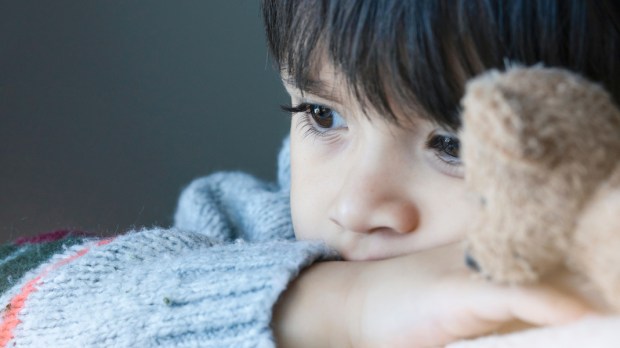As of November 5th, the American Academy of Pediatrics has updated its guidelines about spanking and other methods of disciplining a child.
Until now, the latest guidelines — which had not been changed since their 1998 report — said that “corporal punishment is of limited effectiveness and has potentially deleterious side effects,” and went on to encourage parents to “manage undesired behavior” through other means.
Now, the guidelines don’t speak of spanking as having any effectiveness at all, and researchers’ understanding of side effects of spanking has evolved.
The report, which addresses not just “all forms of corporal punishment,” but also verbal punishments such as shaming or humiliating a child, says that such tactics “are minimally effective in the short-term and not effective in the long-term. With new evidence, researchers link corporal punishment to an increased risk of negative behavioral, cognitive, psychosocial, and emotional outcomes for children.”
Corporal punishment is a broad spectrum, so the AAP’s statement is careful to clarify that it’s not just speaking about the more extreme forms of punishment: it defines corporal punishment as “noninjurious, open-handed hitting with the intention of modifying child behavior,” including “any punishment in which physical force is issued and intended to cause some degree of pain or discomfort, however light.”
The effects of this kind of discipline, which researchers understand much better than they did 20 years ago, is pronounced. According to the AAP’s press release on the subject:
Corporal punishment and harsh verbal abuse may cause a child to be fearful in the short term but does not improve behavior over the long term and may cause more aggressive behaviors, according to the AAP. In one study, young children who were spanked more than twice a month at age 3 were more aggressive at age 5. Those same children at age 9 still exhibited negative behaviors and lower receptive vocabulary scores, according to the research.Research has shown that striking a child, yelling at or shaming them can elevate stress hormones and lead to changes in the brain’s architecture. Harsh verbal abuse is also linked to mental health problems in preteens and adolescents.
It’s not the amount of pain the child feels that the AAP is opposed to, it’s the fact that pain is being used as a disciplinary technique. Why even speak about verbal abuse and corporal punishment in the same statement? Because the result of both is “shame and humiliation.” That’s the report’s conclusion:
Parents, other caregivers, and adults interacting with children and adolescents should not use corporal punishment (including hitting and spanking), either in anger or as a punishment for or consequence of misbehavior, nor should they use any disciplinary strategy, including verbal abuse, that causes shame or humiliation.
The report suggests as healthy forms of discipline, “positive reinforcement of appropriate behaviors, setting limits, redirecting, and setting future expectations.” It calls for pediatricians to proactively address the most common objection — “But I was spanked and turned out just fine” — by remembering that “although many children who were spanked become happy, healthy adults, current evidence suggests that spanking is not necessary and may result in long-term harm.”
“There’s no benefit to spanking,” says Dr. Robert D. Sege, a leading author of the statement. We know that children grow and develop better with positive role modeling and by setting healthy limits. We can do better.”

